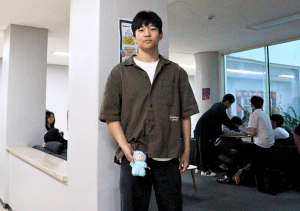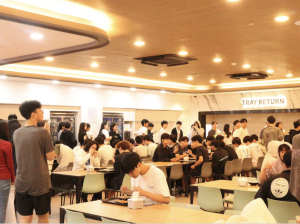Senioritis: Is it treatable?
Feb 1, 2022
As the second semester begins, the epidemic is spreading once again. Piles of unfinished assignments, inboxes overflowing with unread emails, and exams taken with bare minimum effort. Lack of motivation is the principal symptom, bringing students to surf on Instagram for hours and binge-watch Youtube and Netflix until their eyes fill with weariness.
This crippling disease is infamously known as senioritis, an ebbing of motivation and effort of seniors during their last semester of high school. As the stress from college applications diminishes and acceptance letters roll in, most seniors no longer prioritize high school work—absences, tardies, and late assignments become increasingly prevalent.
Teachers and parents often believe senioritis is a conscious choice, an excuse for seniors to be idle and apathetic toward school. Yet, from the students’ perspective, senioritis is an actual psychological syndrome called burnout. Currently, the most effective cure is for teachers and parents to truly understand the causes of senioritis and recognize that students are not entirely at fault.
Senioritis essentially stems from the meritocratic, college-oriented high school culture. From the first day of their high school career, students compete among themselves in a four-year-long marathon. Amid the hypercompetitive race, every individual strives to successfully land on the finish line and leave high school with a prestigious college acceptance letter in one’s hands.
Sleepless nights, extreme pressure over grades, and the constant comparison with their peers are the social norm among high school students. Students juggle multiple extracurricular activities on top of coursework—to an extent where they no longer feel pursuing education is to obtain and retain knowledge but the single goal to get into one’s “dream” university.
The academic pressure and the motivation to get into a certain university ultimately lead to a wave of anxiety beginning sophomore and junior year. Despite the college application process being years away, sophomores and juniors are frequently found discussing how their 85 on a summative test would reduce their admission chances. As such, a student’s emotional state is highly dependent on the grade they receive after a test—a 100 will put a smile on one’s face while a 70 will immediately cause one to swell up with tears. After dedicating a total of six semesters repeating the same emotional and physical exhaustion for every test, it is unsurprising that seniors refuse to make an effort for their last few high school tests.
Senioritis is not an unprecedented phenomenon that only plagues the seniors. It is simply the pinnacle of the academic stress that troubled students ever since they set foot on the high school building. The lack of motivation and hopelessness that most seniors feel is not a conscious choice, but a natural, logical outcome considering how seniors are finally approaching the end goal of their cutthroat high school career.
The antidote to senioritis can be created within the high school community. Instead of criticizing how students are inherently lazy during their senior year, it is imperative for teachers and parents to understand that seniors deserve a chance to relax after their years of college admissions stress. Although it is equally important for seniors to graduate on a high note, a few tardies or absences to take a break and celebrate the accomplishments during high school will not hurt. After all, the mental well-being of students should be prioritized over the last couple of days of attendance and exams during senior year.







